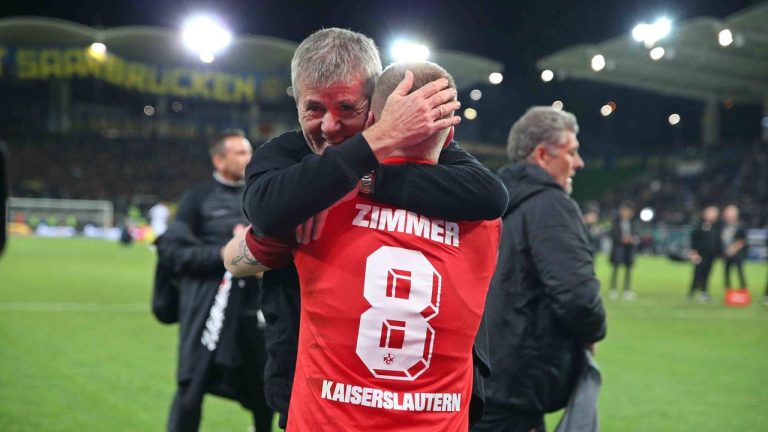The European Club Association ECA and UEFA have pledged more to smaller clubs when it comes to distributing money for the Champions League.
On the fringes of the ECA General Assembly, which will take place on Wednesday and Thursday (September 6th and 7th, 2023) in Berlin, two planned measures were announced, which UEFA also confirmed.
- Reduction ten-year coefficient: A ten-year rating that has been valid since 2018 should at least lose some of its importance. So far, 30 percent of the money in the Champions League is distributed on the basis of ten-year-old performances, from which consistently successful clubs particularly benefit. An example: Paris Saint Germain was eliminated in the 2021/22 Champions League round of 16 and received 92 million euros from UEFA. the FC villa real reached the semi-finals but received only 78 million euros. In addition, there is the market pool, in which TV money is distributed according to the size of the respective TV market in a club’s country, which previously accounted for 15 percent of the money. So far, 45 percent of the money has been distributed via the coefficient and the market pool – this should drop to 35 percent together. As a result, more money can be paid for current services (37.5 instead of 30 percent) and entry fees (27.5 instead of 25 percent).
- More money for non-European clubs: Most of the money from the European Cup goes to the clubs that play in the three competitions. Since income in the European Cup has continued to rise and the reform is expected to continue to rise from 2024, the differences in the national leagues between the top clubs and the rest are increasing Clubs flow that don’t play along. The sale of the TV rights to the European Cup from 2024 is expected to increase total revenues for UEFA and thus for the clubs from 3.5 billion euros per season to 4.6 to 5 billion euros per season. The payments to the clubs that do not participate could thus be increased from 140 million euros to 300 to 350 million euros. That was a crucial requirement of the European Leagues, the association of European national leagues, of which the German Football League (DFL) is also a member.
European leagues praise “right step”, but minor impact on the Bundesliga
“This is a good and correct step in the right direction”, said Jacco Swart, Managing Director of the European Leagues, in an interview with the sports show. Bayer Leverkusen’s managing director Fernando Carro, who sits on the ECA board, told the sports show: “You don’t just have to think about Germany, but also about smaller leagues.”
Background: The changes in solidarity payments will probably only have a too large and short-term effect on competition in smaller leagues. According to UEFA, the Bundesliga was entitled to 8.3 million euros in solidarity payments in the 2021/22 season. According to information from the sports show, the money was passed on in full to the 2nd Bundesliga – the amount for the eleven Bundesliga clubs that do not play in Europe is too insignificant to close the gap to Bayern Munich or Borussia Dortmund. How the higher amount will be handled in the future is not yet clear.
For the ECA one sport political Step against a competing organization
The money distribution measures can also be understood as a sport-political signal. A new organization, the Union of European Clubs (UEC), is currently being formed, which aims to act as a counterbalance to the ECA for the needs of small and medium-sized clubs.
The UEC also claimed the changes as a success. “The increase in solidarity payments is the result of broad support for our goals”announced the UEC. “We have given a voice to the vast majority of clubs in Europe.” The distribution of money is an important topic of the UEC.
ECA board member Carro, on the other hand, told the sports show: “I don’t see any role for the UEC in the future.” The ECA wants to prevent the establishment of a competing association and ruled out, for example, that clubs can be members of both organizations at the same time. With the changes to the money distribution, the ECA is trying to make the UEC less important – because one of its main demands is now fulfilled.
ECA involved in raising and distributing the money
The UEFA Executive Committee takes the final decisions on the distribution of funds. However, the ECA is always significantly involved in the procurement and also in the distribution of the money.
The ECA occupies half of the board of directors of the company “UEFA Club Competitions SA”, which is operated jointly with UEFA and is responsible for the distribution of the TV rights and thus for income.
The distribution of the money is also carried out with the strong involvement of the ECA: UEFA had set up a working group in its bodies to advise on the distribution of the money from 2024. According to information from the sports show, the representatives of the following clubs were involved in the current compromise in addition to the UEFA treasurer and the managing director of the ECA:
- Bayern Munich
- Paris Saint Germain
- Manchester City
- AS Roma
- PSV Eindhoven
- HJK Helsinki
- FC Copenhagen
- Malmo FF
UEFA and ECA sign new ones agreement in principle
The memorandum of understanding between UEFA and ECA was renewed, with UEFA President Aleksander Ceferin and ECA Chairman Nasser El-Khelaifi signing the new document. It regulates the mutual obligations and rights.
For the ECA, it means two permanent seats on the UEFA Executive Committee and guaranteed dominance in the important club competitions committee, which has a say in the format, starting places and money distribution in the European Cup. The document also regulates that UEFA finances the ECA. UEFA receives a guarantee that the clubs do not participate in any external competition – such as a Super League.
Dreesen and Mintzlaff want to be on the ECA board
Large parts of the board will be re-elected at the ECA General Assembly in Berlin on Thursday. Bayern Munich’s Jan-Christian Dreesen and Oliver Mintzlaff representing RB Leipzig are up for election.
With Fernando Carro from Bayer Leverkusen, another Bundesliga representative will be appointed to the board, but without choice – he is the ECA representative in the joint venture with UEFA, these board members are appointed by the rest of the board and not elected. In addition, the “kicker” reported on a special role on the ECA board for Axel Hellmann, the board spokesman of Eintracht Frankfurt.
The Bundesliga has five voting members among its clubs. While Bayern Munich, Borussia Dortmund, RB Leipzig and Bayer Leverkusen retain this status, Eintracht Frankfurt replaces Wolfsburg among the regular members, but VfL retains the status thanks to the successes of its women’s team.


